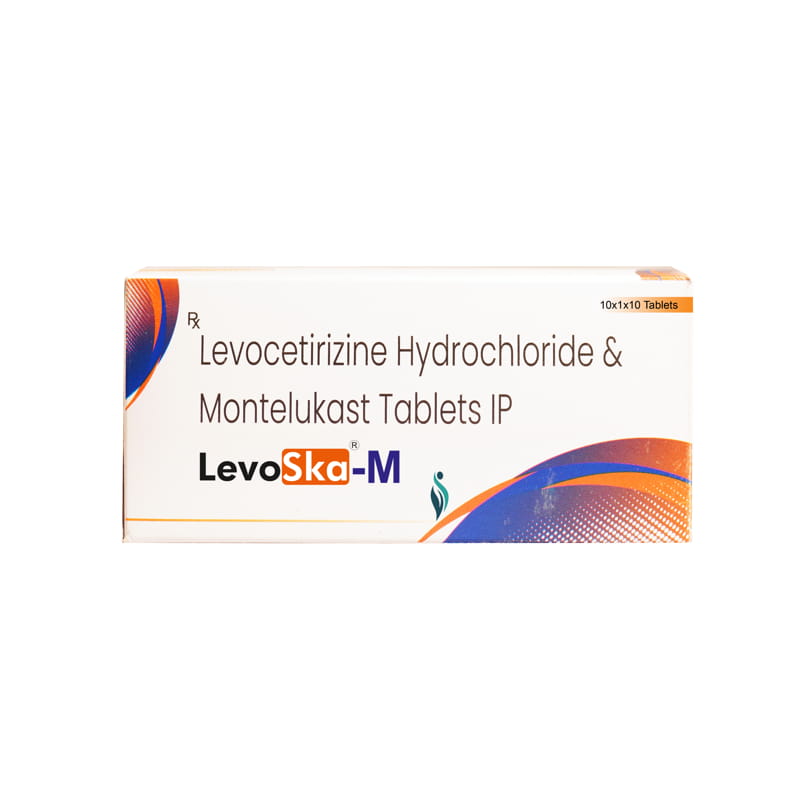
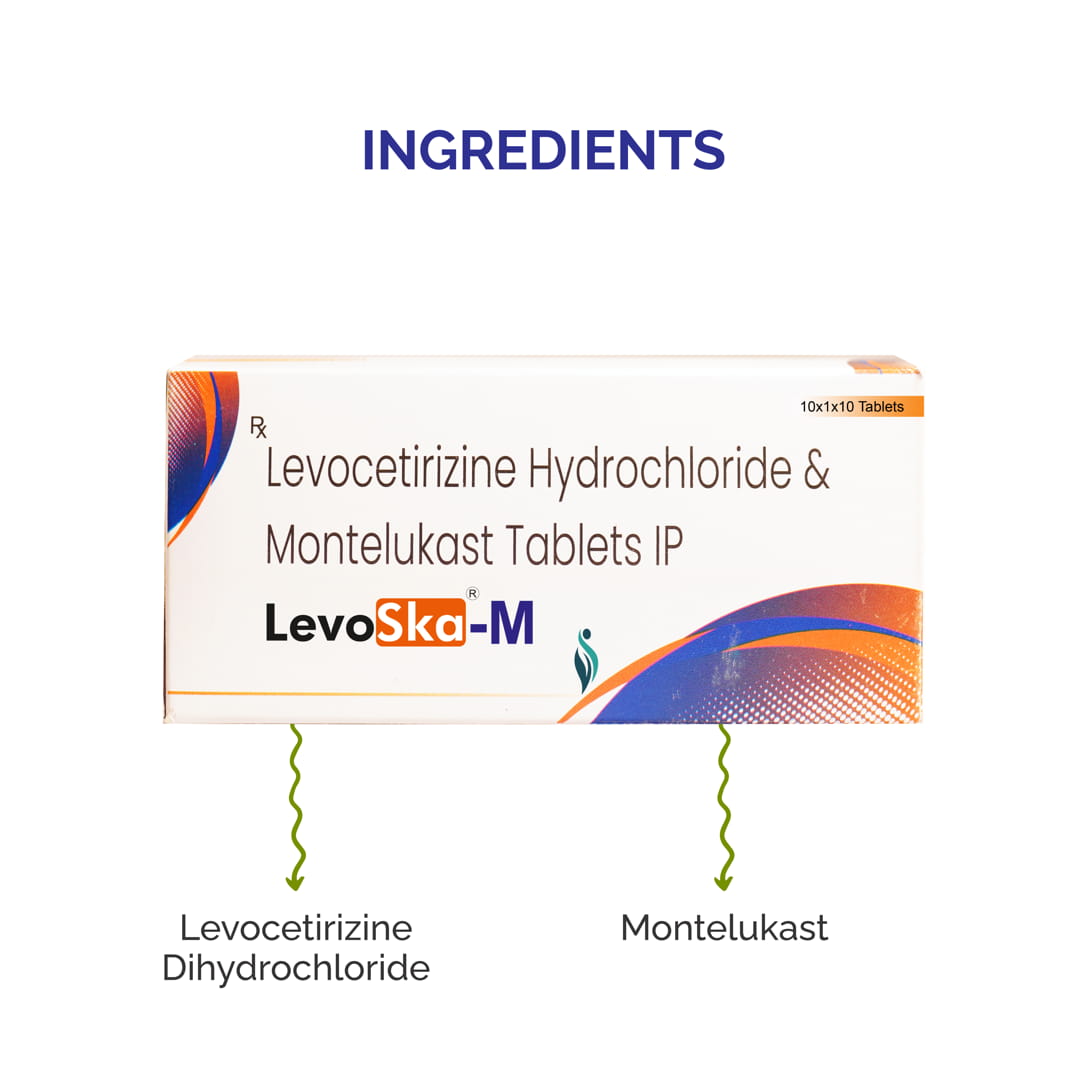
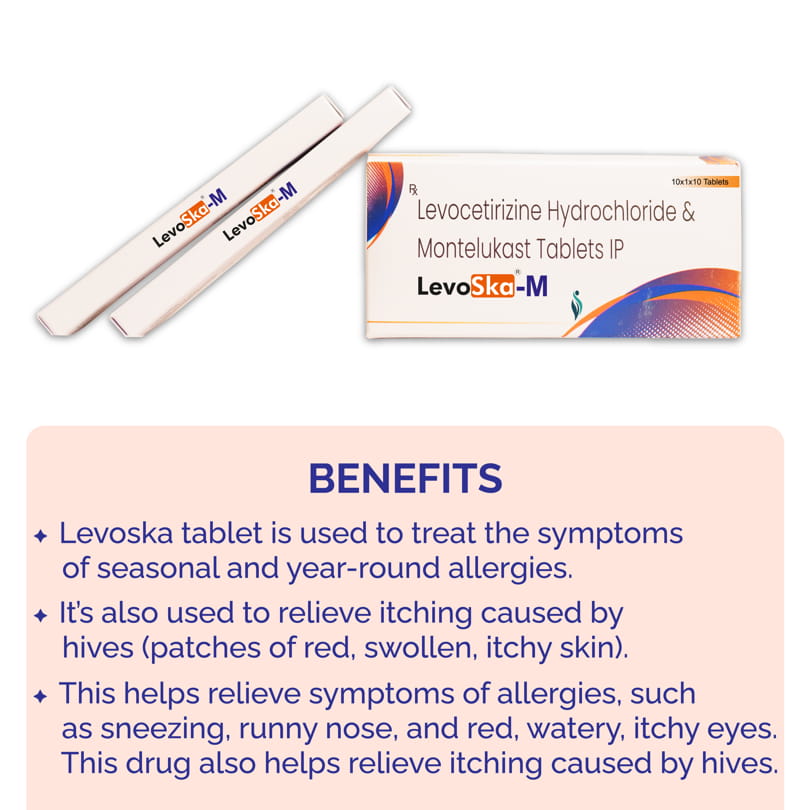
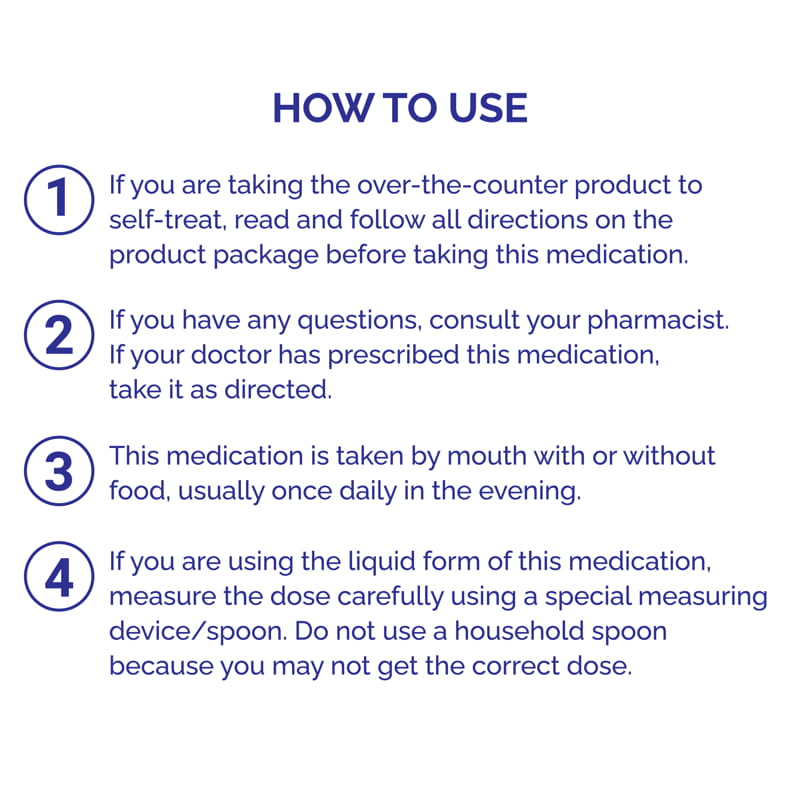
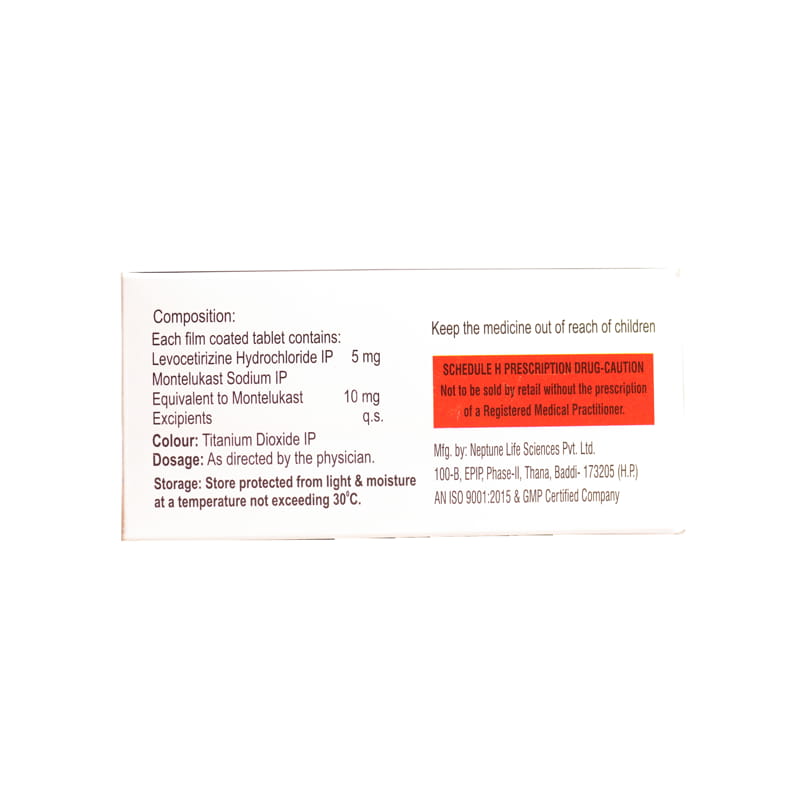
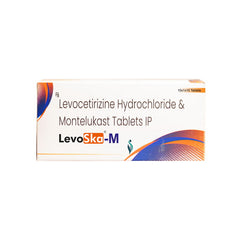
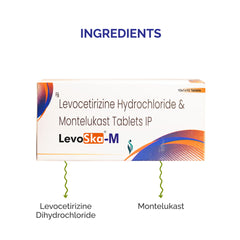



Levoska M tablets, with Levocetrizine hydrochloride & Montelukast, for anti-allergy
- Rs. 135.00 INR
Rs. 135.00 INR- Rs. 135.00 INR
- Unit price
- per
Couldn't load pickup availability
1. Enhanced allergy symptom relief: Combining levocetirizine (an antihistamine) with montelukast (a leukotriene receptor antagonist) can provide more comprehensive symptom relief by targeting different pathways involved in allergic reactions. Montelukast works by reducing inflammation and swelling in the airways, helping to alleviate symptoms such as wheezing, coughing, and shortness of breath.
2. Synergistic effect: Both levocetirizine and montelukast work through different mechanisms to combat allergies. By combining them, the effectiveness of allergy symptom control can be enhanced, providing more robust relief.
3. Improved quality of life: The combination of these medications can help improve overall quality of life by reducing the frequency and severity of allergy symptoms such as nasal congestion, itching, and respiratory difficulties. This can lead to better sleep, increased productivity, and an improved sense of well-being.
4. Long-lasting relief: Levocetirizine and montelukast are both typically taken once daily, allowing for continuous relief from allergy symptoms throughout the day without the need for frequent dosing.
5. Reducing reliance on rescue medication: For individuals with persistent allergy symptoms, relying solely on rescue medications (such as short-acting antihistamines or asthma inhalers) may not be sufficient. The combination of levocetirizine and montelukast can provide more consistent and long-term relief, reducing the need for rescue medication.
It's important to note that the specific combination of levocetirizine and montelukast should be determined by a healthcare professional, who can evaluate your allergies, symptoms, and medical history to determine the most appropriate treatment plan for you. Always consult with your healthcare provider for personalized advice and guidance on allergy management.
It is available in tablet form and usually taken once daily. The recommended dosage for adults and children over 12 years of age is typically 5 mg per day. However, it is important to follow your doctor's instructions or the recommended dosage indicated on the packaging.
If you have any questions, consult your pharmacist. If your doctor has prescribed this medication, take it as directed.
This medication is taken by mouth with or without food, usually once daily in the evening.
If you are using the liquid form of this medication, measure the dose carefully using a special measuring device/spoon. Do not use a household spoon because you may not get the correct dose.
As with any medication, levocetirizine hydrochloride may have potential side effects, although they are usually mild and don't affect everyone. These can include drowsiness, dry mouth, headache, and, rarely, stomach discomfort.
In adults and children ages 12 and older, the more common side effects that can occur include: Tiredness, Dry Mouth, Sore Throat.
It's always a good idea to consult with your healthcare provider or pharmacist before starting any new medication to ensure it is safe and appropriate for your situation.
Remember, this information is provided for general informational purposes only and is not a substitute for professional medical advice. It's always best to consult with your healthcare provider for personalized recommendations and guidance regarding your specific allergies and treatment options.
Safety advice:
Don’t take more than the recommended dose of levocetirizine. There is an increased risk of sleepiness at higher doses.
Related Products
- Rs. 135.00 INR
Rs. 135.00 INR- Rs. 135.00 INR
- Unit price
- per
- Rs. 135.00 INR
Rs. 135.00 INR- Rs. 135.00 INR
- Unit price
- per
- Rs. 135.00 INR
Rs. 135.00 INR- Rs. 135.00 INR
- Unit price
- per
- Rs. 135.00 INR
Rs. 135.00 INR- Rs. 135.00 INR
- Unit price
- per
- Choosing a selection results in a full page refresh.










